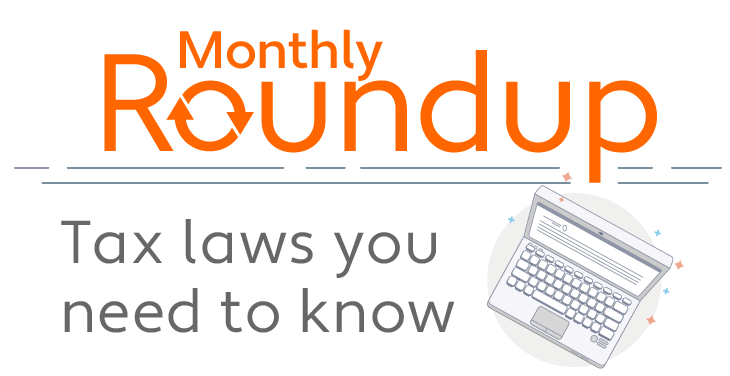Pennsylvania responds to Supreme Court ruling on remote sales tax
Update 6.14.19: The Pennsylvania Department of Revenue has made an arrangement with four Certified Service Providers (CSPs), including Avalara, to make sales and use tax compliance in Pennsylvania easier for remote sellers. Learn more.
Update 1.30.2019: According to the Pennsylvania Department of Revenue, the sales threshold is to be measured by calendar year (not the previous 12 months, as previously stated). Furthermore, after the first year, collection will begin in the second quarter to allow taxpayers adequate time to compile their calendar year sales. Thus the collection period is July 1, 2019 through March 31, 2020 using the 2018 calendar year to determine nexus, and April 1, 2020 thorugh March 31, 2021 using calendar year 2019 to determine nexus. See the Pennsylvania Department of Revenue for additional details.
Update 1.15.2019: The Pennsylvania Department of Revenue updated Sales and Use Tax Bulletin 2019-01 on January 11, 2019. Economic nexus is triggered in Pennsylvania when a remote seller or marketplace facilitator has more than $100,000 in gross sales in the state.
The Pennsylvania Department of Revenue has at last responded to South Dakota v. Wayfair, Inc., the Supreme Court of the United States decision allowing states to impose a sales tax collection obligation on businesses with no physical presence in the state. The ruling gives states the authority to tax remote sales.
Current Pennsylvania law requires every person “maintaining a place of business” in the Commonwealth to collect and remit Pennsylvania sales tax. The definition of “maintaining a place of business” includes “having any contact within this Commonwealth which would allow the Commonwealth to require a person to collect and remit tax under the Constitution of the United States.” Before the Wayfair ruling (June 21, 2018), this didn’t include businesses with substantial economic activity but no physical presence in the state (economic nexus). Post Wayfair, it does.
Learn more about South Dakota v. Wayfair, Inc. and state economic nexus laws.
Upon careful review of the Supreme Court’s decision in Wayfair, the Pennsylvania Department of Revenue (DOR) has decided to enforce economic nexus. On January 8, 2019, it announced: “A substantial economic nexus satisfies the Tax Reform Code’s definition of maintaining a place of business, requiring a person to collect and remit Pennsylvania’s sales tax.”
Economic nexus in Pennsylvania
Economic nexus in Pennsylvania is established when a remote vendor has more than $100,000 in gross sales into the Commonwealth in the previous calendar year.
To determine the threshold, the DOR explains:
- A marketplace facilitator with no physical presence in Pennsylvania should use both facilitated and direct sales
- A marketplace seller with no physical presence in Pennsylvania should use its direct sales and sales made through marketplace facilitators that don’t collect sales tax on its behalf
This economic nexus provision doesn’t apply to marketplace sellers for whom marketplace facilitators collect and remit tax on all sales.
Economic nexus in Pennsylvania takes effect July 1, 2019.
Non-collecting seller use tax notice and reporting: still an option for some sellers
All businesses with economic nexus in Pennsylvania (i.e., more than $100,000 in taxable sales in the Commonwealth in the previous calendar year) must collect and remit Pennsylvania sales tax starting July 1, 2019. But that doesn’t mean all businesses that don’t have economic nexus are necessarily off the hook.
In 2017, Pennsylvania expanded its sales tax law to capture more remote sales tax revenue. 2017 Act 43 requires marketplace facilitators, referrers, and remote sellers with at least $10,000 in taxable sales in Pennsylvania in the preceding 12 months to collect and remit Pennsylvania sales tax or comply with non-collecting seller use tax notice and reporting requirements. According to the DOR, “The provisions of Act 43 remain valid law” and will be enforced.
As of July 1, 2019, the notice and reporting option will no longer be open to marketplace facilitators, sellers, and referrers that meet the $100,000 threshold. Marketplace facilitators with economic nexus will be required to collect sales tax on all sales into Pennsylvania, even those made on behalf of sellers with no individual nexus (sales tax collection obligation) in Pennsylvania.
However, marketplace facilitators, sellers, and referrers that have between $10,000 and $99,999 in Pennsylvania in the preceding 12 months may opt to comply with the non-collecting seller use tax notice and reporting requirements rather than collect and remit sales tax.
Remote sellers encouraged to use a certified service provider
The Pennsylvania DOR plans to certify sales tax compliance service providers (CSP) that will be able to assist businesses with the registration, collection, reporting, and remittance of sales tax. Businesses that use a Pennsylvania CSP to determine whether sales of products and services are subject to Pennsylvania sales tax will be relieved of liability upon audit.
Pennsylvania isn’t the first state to encourage vendors to use a CSP, but it's the first state to do so on its own. The 23 states that are full members of the Streamlined Sales Tax Project (or SST) also encourage businesses to use an SST CSP “to perform all the seller’s sales and use tax functions, other than the seller’s obligation to remit tax on its own purchases.” Avalara is an SST CSP.
According to the SST, “A CSP is designed to allow a business to outsource most of its sales tax administration responsibilities.” In SST states, there are numerous benefits to handling sales tax compliance through a CSP. These include:
Registration and registration updates. Businesses can go through a CSP to register and update registration data with all SST member states. Avalara currently handles all notices for SST customers.
Tax calculation. A CSP integrates its system with the seller’s system to determine what’s taxable, the applicable state and local rates, and the amount of tax to collect at the time of sale.
Free monthly return preparation and filing. A CSP prepares and files the applicable sales tax returns with SST member states. Sellers that volunteer to collect in SST member states and contract with a CSP aren’t charged a filing fee from the CSP because the CSP is compensated by the SST member state.
Audits. For sellers that voluntarily collect and remit in SST member states, the CSP responds to notices of sales and use tax audits and provides transactional data supporting the monthly remittances. SST member states must go through the CSP when auditing a volunteer seller — they may not contact the seller directly. Non-volunteer sellers (those with an obligation to collect and remit under state law due to physical presence in the state) will be contacted directly by the state.
Liability relief. Sellers that contract with a CSP won’t be held liable for incorrectly calculated tax if an SST member state provides erroneous information about tax rates, boundaries, or taxing jurisdictions, or there is incorrect data in the library section of the state’s taxability matrix.
Pennsylvania is not an SST member state, and at this point, it’s unclear what Pennsylvania’s CSP program will look like. The DOR has promised to provide additional information in the coming months.
For additional information about Pennsylvania economic nexus, visit the DOR website. To learn how Avalara can facilitate sales tax compliance for vendors in all states, see our suite of sales and use tax products.

The Avalara Tax Changes midyear update is here
Trusted by professionals, this valuable resource simplifies complex topics with clarity and insight.
Stay up to date
Sign up for our free newsletter and stay up to date with the latest tax news.













